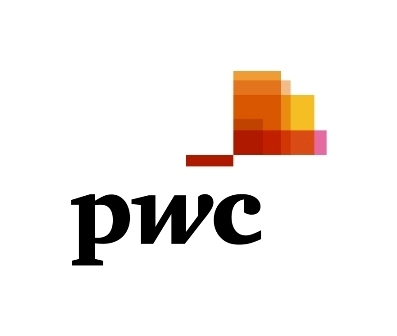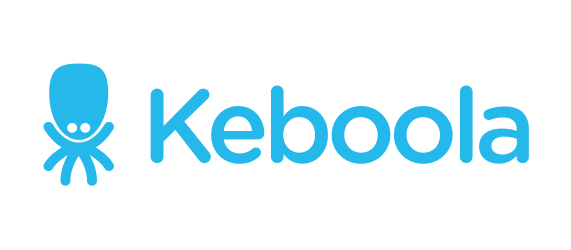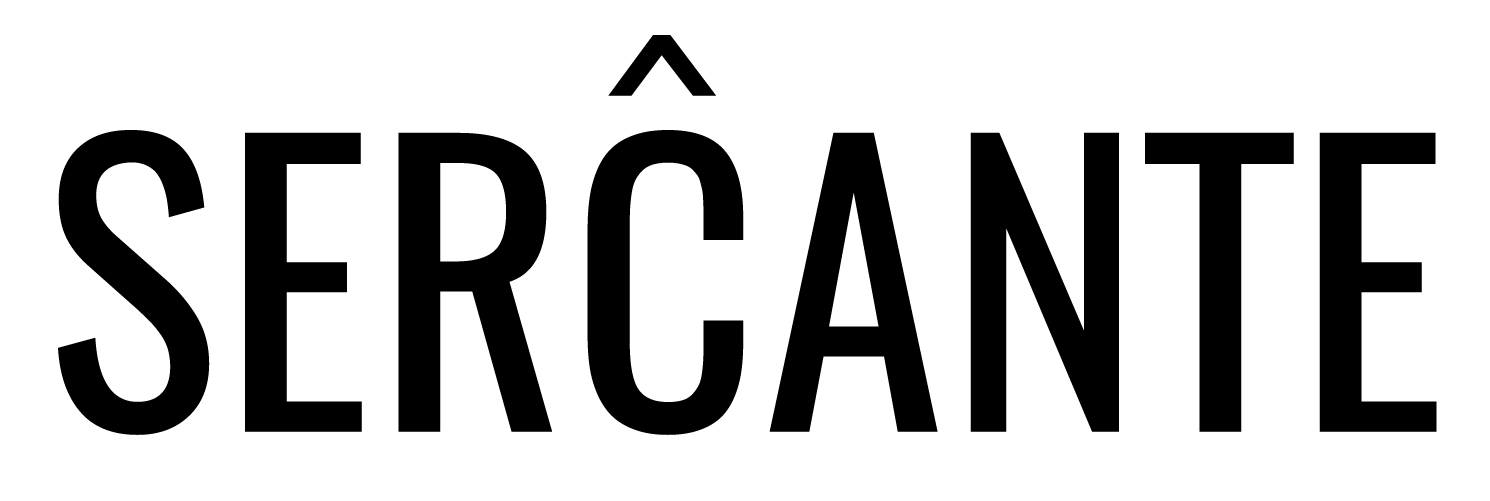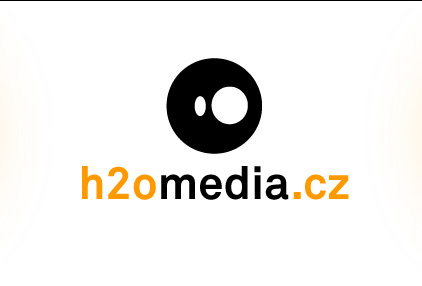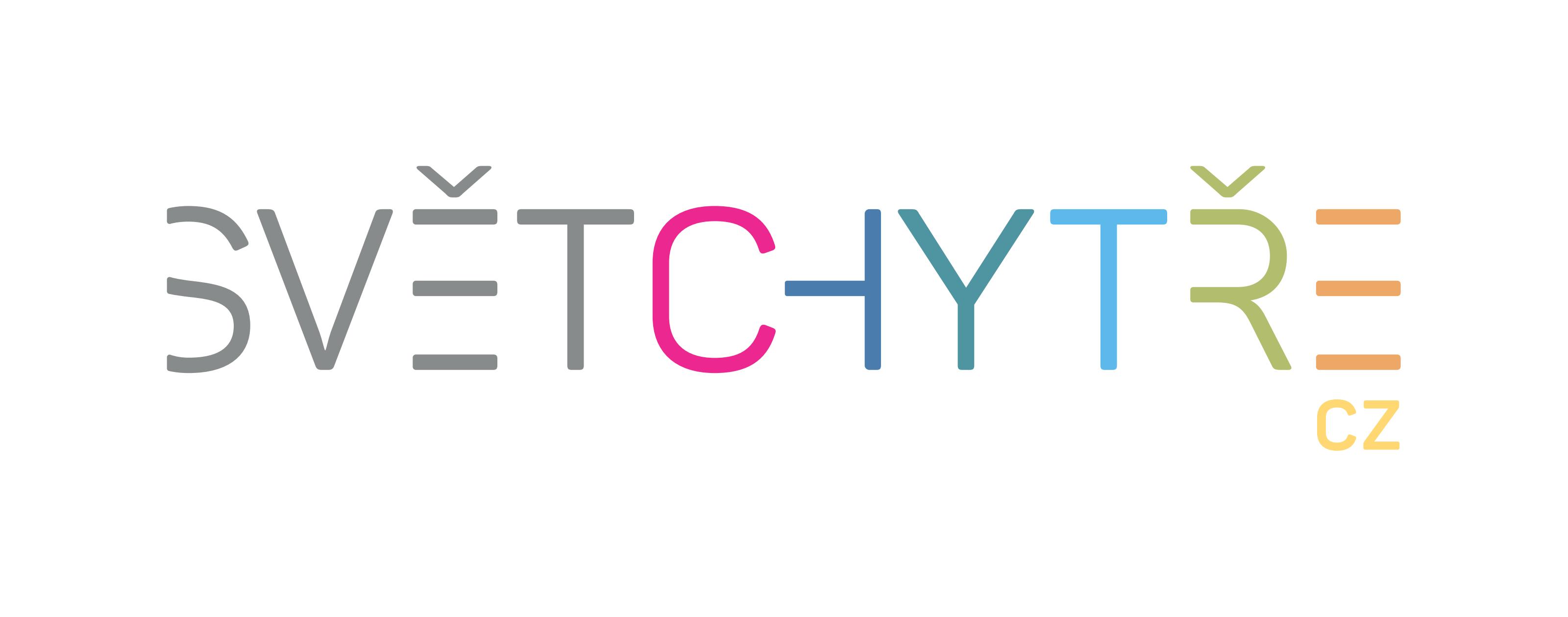Program Schedule
22 session in 4 different tracks, choose which will be the right for you.
- Hall
- Klub A (25 minutes sessions)
- Klub B (Developers)
- Klub C (workshops)
09:00
Welcome word
09:30
Key-note

10:30
Are large scale Salesforce implementations mission possible ? Tips, tricks & observations., Jan Malý, Lea Harmady
How to manage large scale, global implementations with delivery teams scattered across several continents. What are the biggest differences and requirements in approach in comparison with local implementations. Balancing the need to address local specifics with requirements to standardize globally. Aligning technology implementation with process changes and cultural fit. How to support successful user adoption. Applying hybrid project management approach, combining waterfall with agile principles.

11:30
Salesforce Architecture framework, Martin Kona
Session describes how to apply enterprise architecture framework (TOGAF) on Salesforce projects in order to achieve successful implementation and governance. Session will focus on Salesforce specific concerns contained by architecture phases like data model design, product road map, environment strategy, deployment strategy and many more.
12:30
Lunchtime!
13:15
DEMOJAM

13:45
IdeaExchange Reimagined – Shaping Salesforce Products, Scott Allan, Jennifer Sacks
Join members of the Salesforce Customer & Market Insights team, who want your help in reimagining how customers can better influence the Salesforce product roadmap. They’ll get you up to speed on what’s happening with the IdeaExchange, take you through the journey of an idea as it makes it way from conception to production, while soliciting your feedback on how to improve the experience. Come ready to leave your mark on how products get planned.
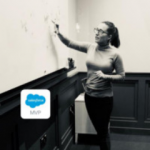
14:45
Discover Social Studio: The Product, The Use & The Connector, Ines Garcia
Lets navigate Social Studio in demo mode! By the end of the session you will know how to use this tool. Learn how to listen, engage, publish and analyse using this powerful all-in-one social media marketing and management suite, some of the pickles, the hub automation extension and the current connector integration and why in my opinion is a kerfuffle.
15:45
Coffee time (or beer time?)
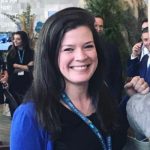
16:15
Campaign Influence & the Marketing Metrics that Matter, Andrea Tarrell
Do you know which of your marketing efforts are paying off?
Our marketing teams have more data at their fingertips than ever before – pageviews, clicks, time on site, number of fans, bounce rate and more. But how do you translate all of this information into actionable KPIs that help you improve the performance of your campaigns?
Topics Covered:
At this session we will discuss best practices for reporting on and attributing results, including:
• Vanity metrics to ignore
• The data you need to improve your campaigns
• Attribution & how to approach it with Pardot & Salesforce
• Knowing your audience – what KPIs to share, when, and with who
17:15
Final word and good bye. Some surprise at the end?

10:30
Don’t Smell like Teen Marketing – The Real Omnichannel Orchestration, Gianluigi Morselli, Javier Romero
The Omni-Channel Marketing is still a dream for many companies using Marketing Cloud. A good architectural approach is the way to break the wall of the traditional marketing, in favor of a concrete Marketing Cloud Omni-Channel strategy, together with Google Analytics, DMP, CRM.
Join us in this masterclass and discover the best practices of Journey Builder, one of the most powerful features of Marketing Cloud, which will help you get the most out of your campaigns by centralizing the trigger of each action from the same place.

11:00
Mulesoft Integration: a talk between SalesforceCat and SalesforceDog!, Julio Diego Barrado Fernández & Laura Diaz
This is the story of how Max the Mule helped long time enemies #SalesforceCat and #SalesforceDog organize the best party ever.
SalesforceCat and SalesforceDog where trying to organize a party but SalesforceDog could not understand all the meoooooows from SalesforceCat, therefore the party planning was a disaster.
Fortunately Max the Mule stepped in with its amazing integration skills to help them understand each other and get the best party ever up and runnig.
Managing Data Integration is commonly one of the most important aspects of a Salesforce implementation. Companies need to have a good data migration strategy when they move from their legacy systems to Salesforce or simply when they want all their systems to seamlessly communicate.
You’ll learn how to use the out-of-the-box connectors provided by the Mulesoft Anypoint Platform to build scalable data integrations and flows with minimal code. Integrating with any application, data source and device, whether they are cloud-based or on-premise systems.

11:30
Salesforce Implementation within PwC Central and Eastern Europe, Georgy Avilov
PwC is making the biggest Salesforce rollout in the world. Central and Eastern Europe was part of this huge rollout. I will talk about (though not limiting):
– Challenges and regional specifics,
– Change Management when implementing Salesforce/CRM,
– Sales process in b2b with Salesforce,
– Benefits of Salesforce and Introhive,
– Lessons learned.

12:00
How to lose a project in 5 ways and how consultants, admins and end users can avoid these issues, Jasmine Ashley
As a consultant or administrator, have you ever been in a project that went off track?? Have you then stopped and evaluated what went wrong? Pondered how you would do it if you could do it all again before moving on to the next one?
As a client, have you decided that its time to start using Salesforce? You are excited, you can see the benefits it will create but are also a little nervous, you haven’t done this before, or you did, but it was a while back and you are not sure what to look out for this time around?
Projects can go wrong because we can overlook these 5 things. How can we work together to make sure we get the results we both ultimately want. Join this session to learn or reminisce about 5 typical project issues and how together we can address these to succeed in your salesforce paths.
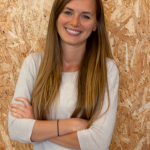
13:45
It’s better in Lightning: Leverage Lightning Flows for more efficient Sales practices, Mihaela Muresan
There are many advantages to move to Lightning if you haven’t already, and one of the most powerful Lightning-only tools is the Cloud Flow Designer, which allows you to create Lightning Flows. A well structured Lightning Flow will do more than automate your processes: it will save time, clicks, and most importantly – it will guide your business users through the Sales process, making sure they always focus on the next most important step they need to take in order to close the deal.

14:15
Reporting Hidden Secrets: What you should know!, Paul Ginsberg
Have you ever wanted to deduplicate mailing lists, show Accounts where you have had Opportunities worth over £10k, or simply open Cases where there has been no recent activities?
We will show you how to make this easy work, and give you unlock your data for you, to bring real insights to your organisation. Touching upon Custom Report Types, Cross Filter and the Power of One, we’ll also explore some fundamentals about how to get the the information your users need, as opposed to what they ask for! They’ll also be time for questions afterwards on any reporting or dashboard related matter.

14:45
Boost your App with Platform Cache Learn how to leverage the platform cache to improve your app’s performance, Daniel Stange
For Web Applications, caching is a common strategy to improve perfomance and reliability. Yet, it’s a lesser known feature that there is “Platform Cache” as a built-in mechanism for Salesforce developers to add to their app design. Leveraging the Platform Cache can reduce your SOQL queries for certain types of data and can cut the retrieval time for data to just a few Milliseconds, which can effectively make access to frequently used data up to 100x faster.
I’ll discuss how to use the platform cache, the improvement you can expect from using the platform cache and the limits it has.

15:15
Piggibacking Platform Events, Igor Chtivelband
In 2017 Salesforce introduced Platform Events which were intended to open up an ‘event-driven architecture’ to Salesforce developers.
The main idea of event-driven architecture is that the system components are decoupled and are not concerned about interacting with each other. Their job is to publish events to the central event bus or to react to published events.
The introduction of Platform Events has given developers another instrument for performing tasks which can not be handled within the scope of a single transaction (e.g. due to the Governor Limits).
At Billie, we immediately identified the huge potential un-orthodox usage of Platform Events and have started to apply them to a variety of scenarios.
In this session, I will present how we use Platform Events to accomplish the following tasks:
- Send mass dynamic emails
- Work around the heap size limitation
- Control the proper transition of Opportunities through their stages, without over-jumping one

16:15
Community Events: Build your new worldwide Salesforce #Ohana, Laura Diaz, Julio Diego Barrado Fernández, Pedro Molina
The Salesforce Community is constantly growing and evolving, people engage with it and get a lot of new exciting experiences.
If you want to know all about what drives our Community to host their own local events, how they get organised in the global world we live in, this is a nice talk where you will get inspired.
As team members of the Community led event dreamOlé, we want to share our very own experience, a group of 8 individuals who live in different cities and even in different countries and who attend weekly remote meetings to organise an event that changes location every year… Remotely organising an event from multiple remote locations!! See how we build our event and put all the pieces together!!
You will get a feel for what the Salesforce Ohana is, and how you can take our learnings to build your very own new family and develop new relationships with people in the Salesforce ecosystem.

16:45
The Trial – Clicks, Code, and Kafka, Christian Szandor Knapp, Daniel Stange
Code works just fine. Clicks work just fine. But when you combine code and clicks – Apex Trigger and Process Builder Actions for example, this is where you invite Kafka’s paradoxes – also known as WTFs? – into your Org: Everything looks peachy at the beginning, over time you add more functionality only to wake up one morning to find your org transformed into a gigantic bug.
In this session we will demonstrate how easy it is to really blow things up using code and clicks. And, of course, how to avoid this scenario altogether. We will put our – and your – assumptions on Trial: Is it true that Apex performs faster than Flow? Can CPU Time exceptions be avoided? Do best practices we know from Code apply to Clicks as well?

10:30
Lightning Web Components – A new era, René Winkelmeyer
With the rise of Lightning Web Components a new era for building custom applications on the Salesforce platform emerged. Being based on web standards, this new programming model enables developers to leverage standard web development skills for crafting their custom components. In this session we’ll walk through about what Lightning Web Components are, how to build and deploy them, and how to run them everywhere.

11:30
Lightning BaseComponent & LWC BaseService, Svatopluk Sejkora
We have created reusable component for lightning (both Aura and LWC) that handles most common repeating tasks:
- call apex using promise (Aura, for LWC error and success messages handling)
- create notification using notifLibrary (Aura, for LWC there is different approach)
- properly show spinner
these are tasks that you as a developer need to handle every time you work with lightning and creating cool functionality for your users. I will explain how to create a reusable base component, how to use it and why it is so important to have it standardized within your org. Main benefit is that you are not creating showSpinner, callApex methods within every helper of every component, you just use the base component and it handles all of it for you. We will have a look at differences in implementation in Aura and in LWC.
Component is using javascript promises so I would suggest to have basic knowledge of how they works for dev session.

13:45
Quit Jesting and Test your Lightning Web Components, Phillipe Ozil
A wise developer once said “All code is guilty until proven innocent.” Testing your code is critical and Lightning Web Components makes no exception to that rule. Join my session and learn how to test your components. You’ll get an overview of the testing environment including the Jest framework. I’ll demonstrate how you can test components in complete isolation with Apex mocking.

14:45
Bypassing Validation Rules Through Automation, Aaron Crear
Validation rules are a useful method of maintaining data hygiene, orders of operations and ensuring that users follow the correct work processes. However, at times they can be a hindrance to being productive. In this presentation we will show you how to allow users to bypass validation rules to update records through their activities without allowing them to manually update records.

16:15
Live Refactoring Custom Settings into Custom Metadata Types, Vladimir Gerasimov
Are you using custom settings or custom objects to store configuration data in your Salesforce app? This is so last century! If you want to party with all the cool kids on the block, you need to start using custom metadata types! In this session we’ll provide an overview of custom metadata types and why they are the configurational engine for your apps and packaged and will take an existing Salesforce app which uses custom settings and refactor it in real time to use custom metadata types instead, changing Apex classes, post-install scripts, tests, validation rules, and formula fields.
You will also have a chance to get a first look at a new SFDX CLI plugin that makes working with custom metadata types easier!

10:30
Quick Start to Field Service Lightning, Paweł Dobrzynski
Have you ever wondering what Field Service Lightning is about? And why it is the fastest growing product in Salesforce portfolio? Come to the session, buckle-up and learn how Salesforce FSL helps solving common issues that are faced by organisations with mobile workers.
In this 2.5 hour hands-on workshop, you will have a chance to configure field service workforce and schedule your first appointments. We will focus on the base concepts of Field Service Lightning that will give you a fair understanding of this solution and set a ground for further learning if you decide to extend your knowledge.

13:45
Get the analytics edge, learn Einstein Analytics, Rikke Hovgaard
Are you interested in Einstein Analytics but don’t know where to start?
Join this workshop to get an overview of the platform and get your hands dirty building your first dashboard. You will leave the workshop understanding the basics of Einstein Analytics as well as be equipped to take your analytics and data skills to the next level.
You’ll need to bring your laptop and have a dev org for this workshop! It is recommended you get a brand new one using this link: https://developer.salesforce.com/promotions/orgs/analytics-de
Please ensure you bring your laptop and have you dev org created prior to attending.
Sustainability at CzechDreamin
Sustainability is a big topic for Salesforce and it is for us as well. We are happy that we found…
Agenda for Saturday
You arrived to Prague to enjoy a great conference, a lot of highly interesting sessions full of new knowledge, but…
Key-Note Speakers
22 session in 4 different tracks, choose which will be the right for you.
Jennifer Sacks
Sr. Director, Customer & Market Insights


